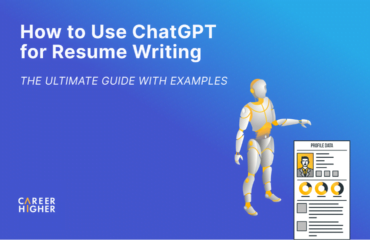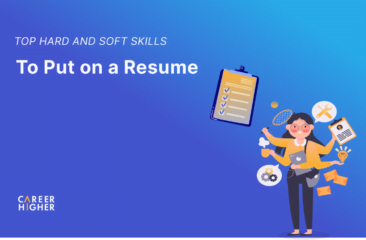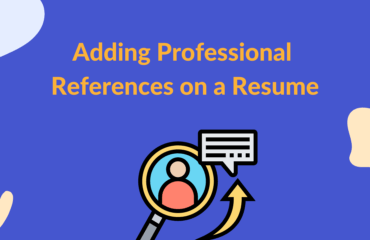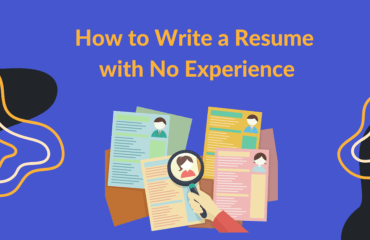Table of Contents
When you’re applying for a new position, resume mistakes not only give a bad first impression but can also cost you the job. You can have the required experience and skills, but if your resume isn’t up to scratch, you may end up missing out on your dream role after all. Mistakes will make you look like a candidate who lacks attention, commitment, and interest in the position, and this will likely be what stops you from getting any further in the recruitment process. Let’s discuss some common mistakes that people make when writing resumes, so you know what to avoid.
1) Not customizing the resume for each job
One of the most common mistakes that many job seekers make is using the same resume for each job without changing the keywords, title, and other key points that ensure the resume is tailored to a specific job. As a job seeker, it is important to tailor your resume before submitting an application to maximize your ATS score and screening success rate. While submitting general applications covering all bases may sound easy and convenient, tailoring a document can make a real difference.
2) Using personal information
Adding personal information such as gender, age, and marital status to the resume is a thing of the past. Many progressive countries also have anti-discrimination laws that prohibit hiring decisions based on personal information. Thus, it is illegal to put such information in a resume in such countries as they will remove this information if it is included. Your resume is an important document that needs to comprehensively describe your experience and history as a professional. Space is limited, so details such as personal information that does not add value should be omitted in favor of something that can be used to highlight your suitability for the role.
3) Adding incorrect dates
Another important aspect that should be kept in mind is the dates of your professional history. Recruiters and hiring managers are particular about the dates and expect them to be precise and correct. If you have an employment gap, address it truthfully and explain the alternative activities you undertook to minimize the negative impact of the gap. We suggest using month and year with each job that you describe instead of just mentioning the year. This brings more clarity to your work experience history and squashes any doubts your target employers may have about your work history.
4) Not using the right keywords
Keywords are one of the most important aspects of a resume. Using too many keywords or too few keywords are two major mistakes that job seekers make. Using too few keywords may result in a lower ATS score that will automatically reject your resume even before human views it, whereas on the flip side, using too many keywords will create a bad impression if it causes the document to be wordy and unclear.
At the end of the day, it is a human reading your resume in the final stages, to ultimately accept or reject it. It is necessary to write a resume that has a human touch and does not seem to be written for a robot. Using unnecessary keywords will also take up space in your resume, which can otherwise be filled with relevant, targeted text. We suggest using JobScan to get an ATS score and add appropriate keywords as and where required.
5) Lack of depth in the professional experience section
The resume that you submit to your target employers should be high quality. A major portion of your resume is your professional experience section, which should be explained in an optimum manner. Many professionals do not accurately explain how and what they did to give the recruiter a clear idea of their role and contribution. This section needs to be aligned with your target job. Make sure that all of your relevant jobs are listed chronologically in the initial part of the section, followed by the older jobs or the ones less in line with your target job.
We suggest using the STAR approach to explain the relevant roles. With this approach, you describe the Situation/Task, define the project you are a part of, the key duties you perform, followed by the Actions you take. This mainly includes describing the specific tasks you perform and the teams that you lead. It is important to close with the Results, describing your achievements quantitatively, to show the impact of your actions. You can simply summarise the jobs that are older or not directly in line with your target job, without using the STAR method.
6) Choosing weak verbs
The verbs that you use in your resume should strongly describe the actions you took. While it is common for professionals to use verbs like ‘managed’, ‘led’, and ‘responsible for’, we suggest using strong, unique verbs that will help your resume stand out. Some of these include, ‘outperformed’, ‘promoted’, ‘oversaw’, ‘instructed’, and ‘monitored’. Grammarly and Thesaurus are great tools that you can use to replace your regularly used words with unique, high-performing alternatives.
7) Not checking for grammatical errors
Grammatical errors are the most common type of mistake that can lead to the rejection of your resume. Research says that 79% of employers say that they may reject a resume because of grammatical or spelling mistakes. These errors may be hard to notice and will require a high-level attention-to-detail. Common mistakes include spelling errors, using the wrong tenses, unnecessary/ wrong articles, and using incorrect punctuation, amongst others. These mistakes are seen by recruiters to demonstrate a lack of attention and commitment. To make sure, your resume does not have any grammatical errors, we suggest running it through Grammarly and proofreading it before making the final submission.
So in conclusion, it is vital that you write your resume with a fresh mind and a high level of concentration to avoid making these kinds of mistakes. To make sure that your resume is the best it can be and free of error, we suggest getting your resume proofread by a friend or a professional. If you are looking for a professional to write your resume to avoid such mistakes, we recommend contacting us at CareerHigher and we can have a chat to discuss your resume and support you to land your dream job.











